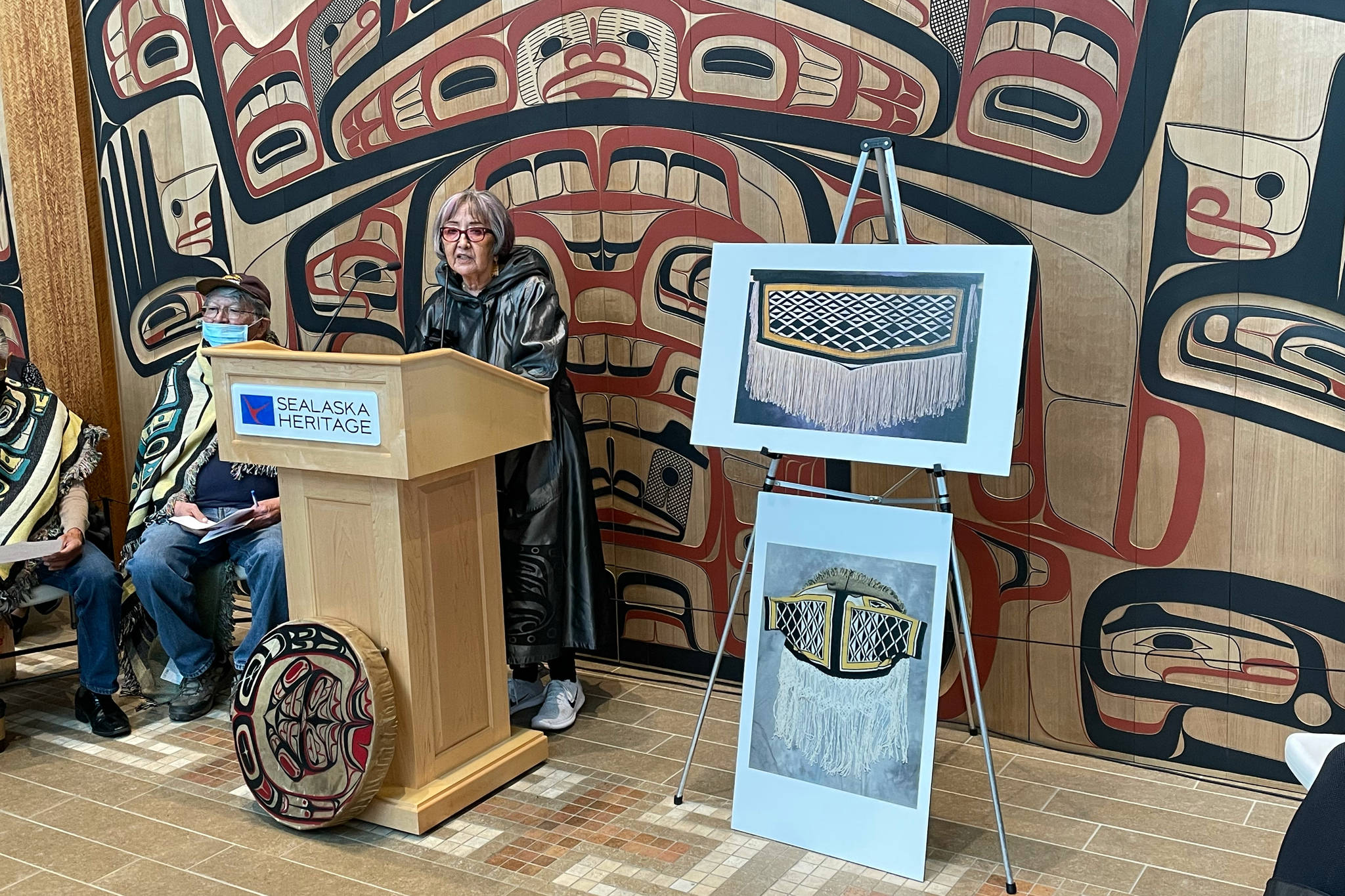A ceremonial fire in front of the Walter Soboleff Building on Friday marked the end of a legal battle over alleged theft of intellectual property that stretched back to 2019.
During the ceremony, family members of acclaimed weaver Clarissa Rizal and clan leaders gathered and immolated an example of a commercial garment at the center of the case
The specific lawsuit was over the fashion company Neiman Marcus’ “Ravenstail” coat, which SHI alleged in a now-settled suit was “blatant” copyright infringement of a design created in 1996 by Rizal, renowned Chilkat- and Ravenstail-style weaver.
“We resolved it not only in accordance with U.S. law but by Tlingit law and practice,” said Rosita Worl, president of the Juneau-based nonprofit that protects and propagates Southeast Alaska Native art and culture, during the ceremony. “Tlingit law is very clear in protection of our intellectual property.”
The ensuing lawsuit leveled against Neiman Marcus by the Sealaska Heritage Institute was settled in March.
“In Tlingit laws, names and designs are protected. This is the purpose of this ceremony,” Worl said. “Today, we will be burning one commercial coat to transfer its spirit to Clarissa Rizal.”
Lily Hope, Rizal’s daughter and traditional weaver and artist of no small repute herself, spoke as well, urging other artists to come work with Indigenous artists to honor the art form.
“Come to us. Work with us,” Hope said during the ceremony. “Help us to elevate our designs together.”
Taking a name or design violates a sacred law in Tlingit culture, said Ricardo Worl during the ceremony, with the ceremony held Friday intended to bring closure to Rizal, family and clan. Other speakers, including members of multiple clans echoed the themes of propriety, and the maintaining of culture, language and law.
With speeches concluded, the group burned an example of the Neiman Marcus garment in front of the Walter Soboleff building along with an offering of food burned in the fire for Rizal. Family members and related parties were also given parts of the commercial garment.
Rosita Worl also thanked lawyer Jacob Adams, a specialist in Indigenous intellectual property rights, who assisted in the case.
She said that as a result of the conditions of the settlement, they were forbidden from offering almost any remarks about the case.

